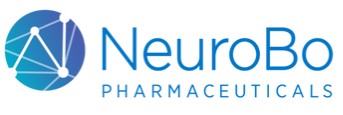agonist of GLP-1 receptors (GLP1R) and glucagon receptors (GCGR), leading to weight loss through reduced appetite and increased energy expenditure. DA-1726 has a well understood mechanism and, in preclinical mice models, resulted in improved weight loss compared to semaglutide and cotadutide (another OXM analogue).
About NeuroBo Pharmaceuticals
NeuroBo Pharmaceuticals, Inc. is a clinical-stage biotechnology company focused on transforming cardiometabolic diseases. The company is currently developing DA-1241 for the treatment of Non-Alcoholic Steatohepatitis (NASH) and Type 2 Diabetes Mellitus (T2DM), and is developing DA-1726 for the treatment of obesity. DA-1241 is a novel G-protein-coupled receptor 119 (GPR119) agonist that promotes the release of key gut peptides GLP-1, GIP, and PYY. In preclinical studies, DA-1241 demonstrated a positive effect on liver inflammation, lipid metabolism, weight loss, and glucose metabolism, reducing hepatic steatosis, hepatic inflammation, and liver fibrosis, while also improving glucose control. DA-1726 is a novel, dual oxyntomodulin (OXM) analog that functions as a glucagon-like peptide-1 receptor (GLP1R) and glucagon receptor (GCGR) for the treatment of obesity. OXM is a naturally-occurring gut hormone that activates GLP1R and GCGR, thereby decreasing food intake while increasing energy expenditure, thus potentially resulting in superior body weight loss compared to selective GLP1R agonists.
For more information, please visit www.neurobopharma.com.
Forward Looking Statements
Certain statements in this release may be considered forward-looking statements within the meaning of the Private Securities Litigation Reform Act of 1995. Words such as “believes”, “expects”, “anticipates”, “may”, “will”, “should”, “seeks”, “approximately”, “intends”, “projects,” “plans”, “estimates” or the negative of these words or other comparable terminology (as well as other words or expressions referencing future events, conditions or circumstances) are intended to identify forward-looking statements. Forward-looking statements are predictions, projections and other statements about future events that are based on current expectations and assumptions and, as a result, are subject to risks and uncertainties. Many factors could cause actual future events to differ materially from the forward-looking statements in this release, including, without limitation, those risks associated with NeuroBo’s ability to execute on its commercial strategy; the timeline for regulatory submissions; ability to obtain regulatory approval through the development steps of NeuroBo’s current and future product candidates, the ability to realize the benefits of the license agreement with Dong-A ST Co. Ltd., including the impact on future financial and operating results of NeuroBo; the cooperation of our contract manufacturers, clinical study partners and others involved in the development of NeuroBo’s current and future product candidates; potential negative interactions between our product candidates and any other products with which they are combined for treatment; NeuroBo’s ability to initiate and complete clinical trials on a timely basis; our ability to recruit subjects for its clinical trials; whether NeuroBo receives results from NeuroBo’s clinical trials that are consistent with the results of pre-clinical and previous clinical trials; impact of costs related to the license agreement, known and unknown, including costs of any litigation or regulatory actions relating to the license agreement; effects of changes in applicable laws or regulations; effects of changes to NeuroBo’s stock price on the terms of the license agreement and any future fundraising; and other risks and uncertainties described in our filings with the SEC. Forward-looking statements speak only as of the date when made. NeuroBo does not assume any obligation to publicly update or revise any forward-looking statements, whether as a result of new information, future events or otherwise, except as required by law.
Contacts:
